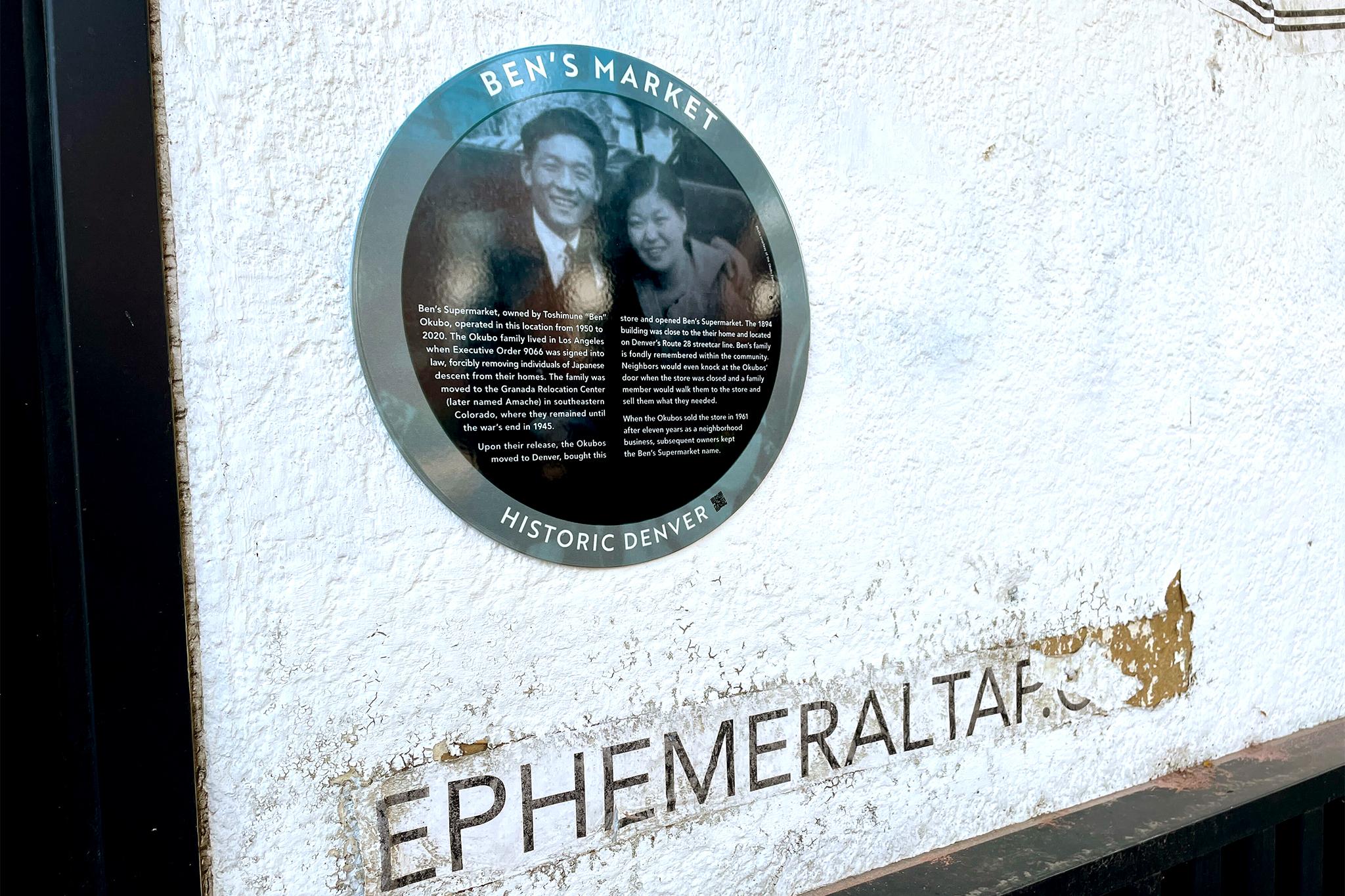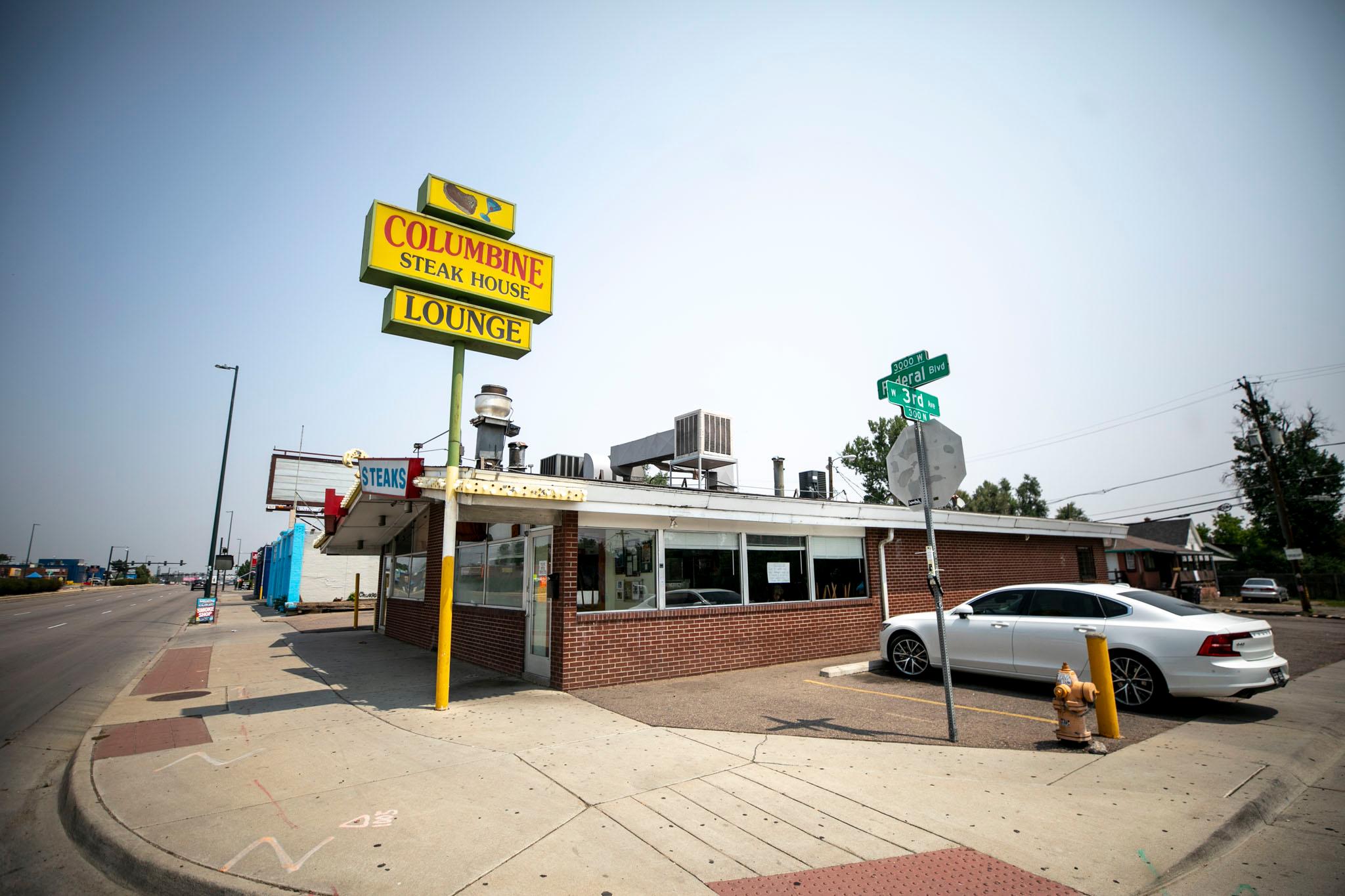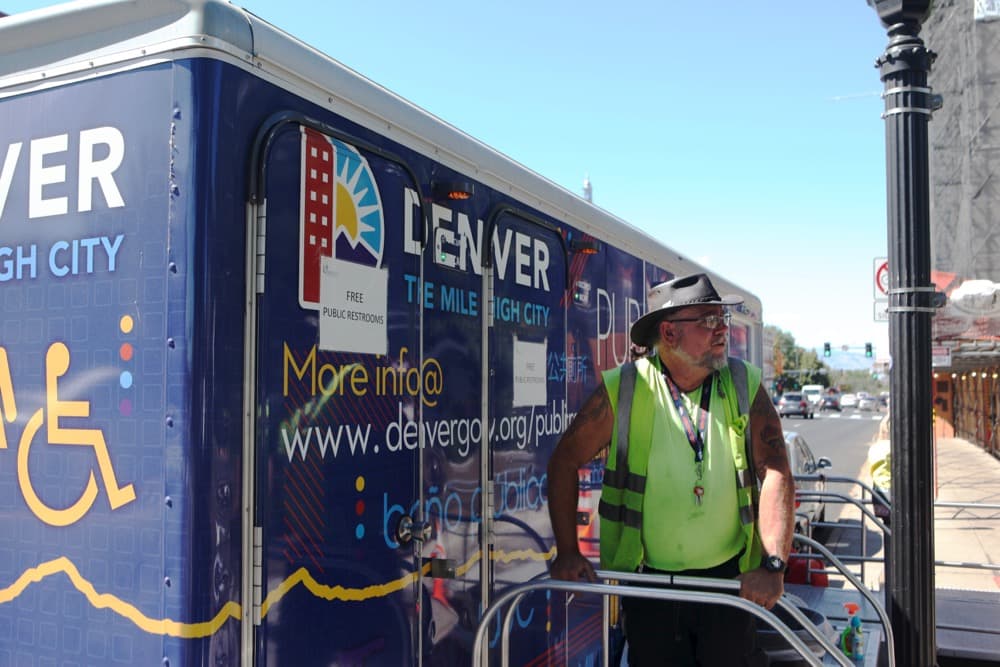
A man wearing a fish hook in his leather Aussie hat and a cinch in his beard stands guard by a 22-foot blue trailer on East Colfax.
He watches as people file in through three doors in its wall — first a drunken couple, then a construction worker in a neon vest — and he counts the minutes until they leave. When business is slow, he calls out to strangers walking on his block.
"Have you tried the free bathroom?" he'll say. "It's clean. I'll make you a bet it's as clean as your restroom at home. I'll bet you."
Sometimes it takes some convincing, because on this avenue a free bathroom sounds too good to be true. The McDonald's just across the street has even installed remote-controlled locks on its restrooms.
This trailer, however, is the site of an experiment: It's one of two portable public restrooms that are patrolling Colfax Avenue and downtown, an area that has only a handful of free toilets. If it works, it may be Denver's solution to a growing public health problem that can get downright dangerous.
It's a solution, the city hopes, to the problem of human waste.
"It stinks like piss," says Sam Sanchez, referring to the alleyway behind the tailor shop where he works.
And it can be deadly. The city of San Diego is trying to contain an outbreak of Hepatitis A, which is transmitted through human feces, by bleaching its sidewalks and deploying portable toilets. At least 16 people have died.
"Everybody's facing the same problems: They're getting more urban," says Alen Ribic, the administrator that Denver hired in 2016 specifically to run its public restroom program.
More people, more waste, more problems. The police have little power to discourage public urination and defecation, especially from people who live on the streets.
"They don't want to issue citations, but what are they going to say? Where are the people going to go? They can't go," Ribic says.
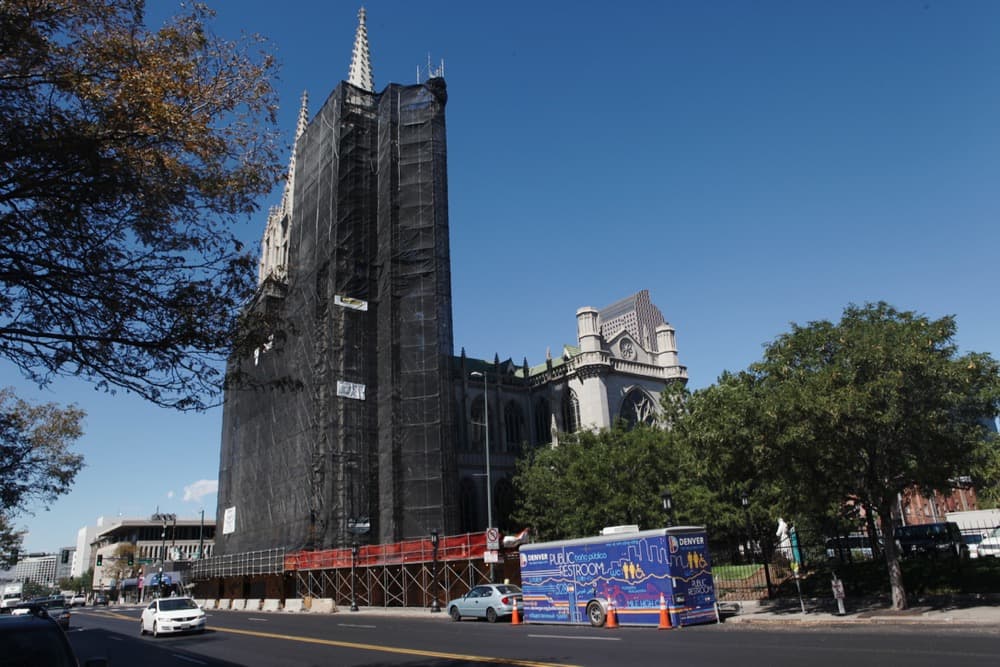
Cities have wrestled with this problem for approximately forever.
Boston, New York, Los Angeles and Seattle all have deployed automated, self-cleaning public restrooms -- but the robotic units have run into plenty of trouble, and Seattle gave up after spending $5 million on five toilets. (They put them on eBay afterward.) In the United Kingdom, tight budgets have led to the closure of almost 1,800 public facilities in a decade.
Businesses, meanwhile, are more hesitant to open their stall doors, especially with the opioid epidemic. Some stores on the 16th Street Mall have found people overdosed in their bathrooms every month, Ribic says, and new technology has only made it easier to restrict the use of their bathrooms.
Other cities have started trying some rather aggressive measures, too. San Francisco has covered walls with liquid-repelling paint that's meant to soak the shoes of public urinators. In Mumbai, activists reportedly have sprayed down urinators from a water tanker.
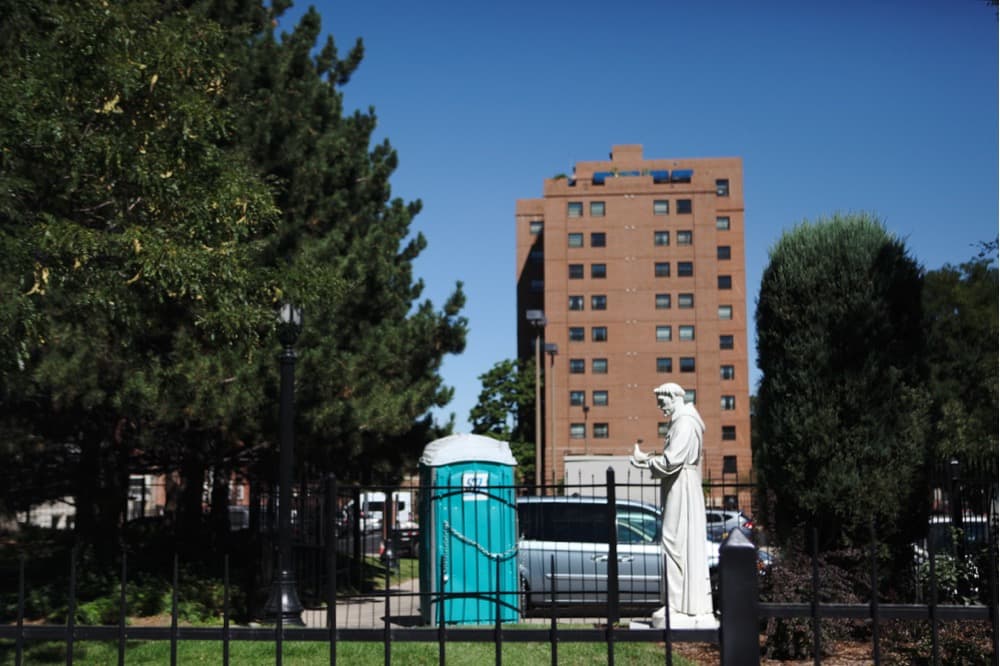
Denver, however, is putting its faith in the simplest way to get rid of pee: a toilet.
On the day I visit, the Colfax trailer stands beneath the scaffolding-wrapped spires of Cathedral Basilica, whose hallowed grounds are a popular dumping site.
The city's mobile facility, complete with three restrooms and an office for an attendant, has been rotating along East Colfax Avenue since March 2016, hauled behind a truck and left for weeks at a time at various stops. A second unit was deployed closer to the 16th Street Mall more recently.
Ribic says that the city chose those locations based on heavy pedestrian traffic and a lack of facilities -- but the instant public perception was that the city's $30,000-a-month experiment was meant mostly for people experiencing homelessness.
"Oh my God, we don't want you here. What's this doing here?" the residents of one apartment building said when the bathroom first arrived, according to Grogan.
They worried that the bathroom would "attract" unwanted people. "We've already got all these drug dealers and all this here. We don't want you here. Go away," he recalls them saying.
In fact, homeless people have made up about half of the toilets' users on a given day, according to the city's surveys. The service has otherwise been popular among commuters getting off the bus, tourists out for a stroll -- just about anyone.
Grogan says that those same apartment dwellers were begging him to come back within a few weeks, and the bathrooms have drawn other positive reviews too.
"Believe it or not, I did notice a big difference," says Cris Walker, store manager for Capitol Hill Auto, near one of the temporary restroom sites.
"Unfortunately -- and I don’t mean to downtrod on the homeless -- they kind of tend to mess up our bathroom, so a lot of the businesses around here, if you don’t buy anything, you can’t use it," she explains. "It kind of hurts."
The presence of a free, public restroom "took a lot of stress" off the businesses, she says, and she noticed that her parking lot and the streets were much cleaner when the mobile unit was nearby.
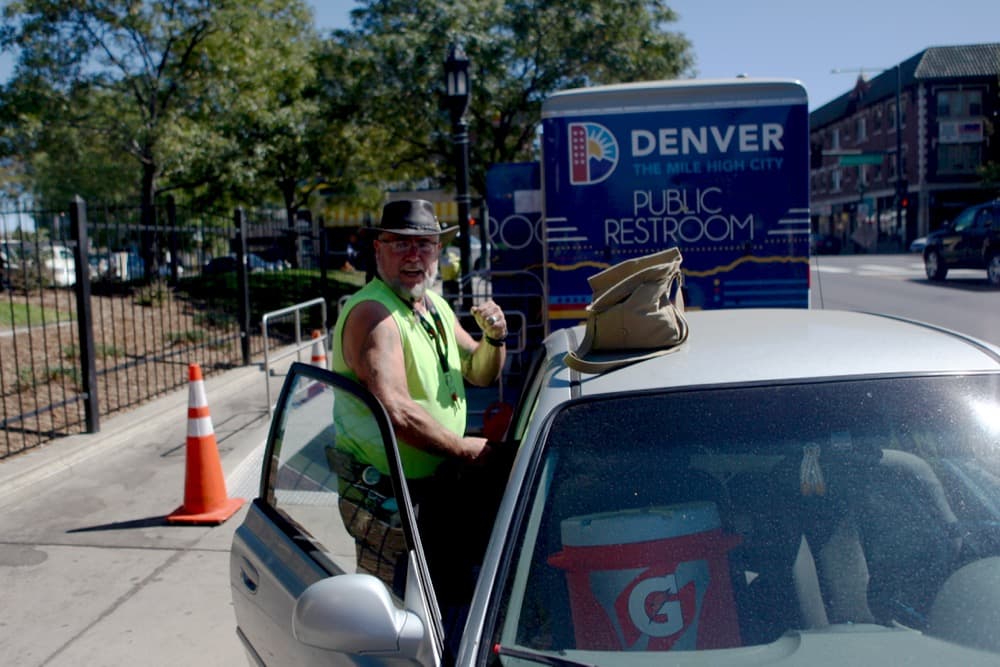
People make the difference.
"I never thought I was going to grow up to be a restroom attendant in trailer on Colfax. C'mon, I don't think that's anyone's dream," says Grogan, a former mechanic, as he takes a break inside the cramped but tidy office of the trailer.
It's a tough job, he admits. It pays $10 to $11 an hour, the shifts are 10 hours long, and he's seen everything from wild amounts of feces to the attempted theft of bathroom fixtures. He's even seen 16 people crammed into the trailer at once as part of a scavenger hunt.
"If it wasn't so many people being glad and happy, I would have left this job a long time ago," he says. "... I'm sure this thing would have been destroyed long ago if there wasn't somebody here constantly with it."
And the city will need many more people like him if its greatest bathroom plans are fulfilled.
Ribic, the program coordinator, says that the long-term hope is to install restrooms like this up and down Colfax Avenue and downtown. If approved, he would replace metered parking spots with permanent, stainless steel structures that are connected to plumbing. Each one would include a disability-accessible bathroom, a standard bathroom and an attendant's station.
Especially with the need for constant staffing, even a couple of bathrooms could cost hundreds of thousands of dollars per year -- but that might be the only way to provide a service that he sees as crucial to public life.
"Our philosophy is that these units should be for everyone," he says. "We consider public restrooms to be the same as sidewalks and benches. It's part of the street furniture."






